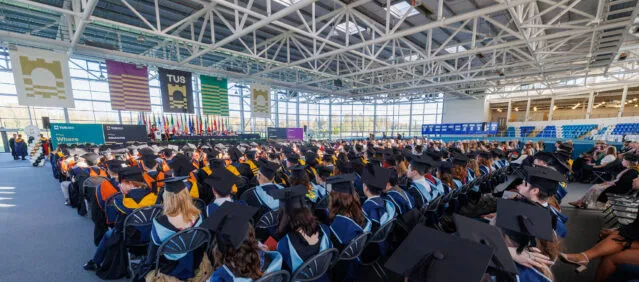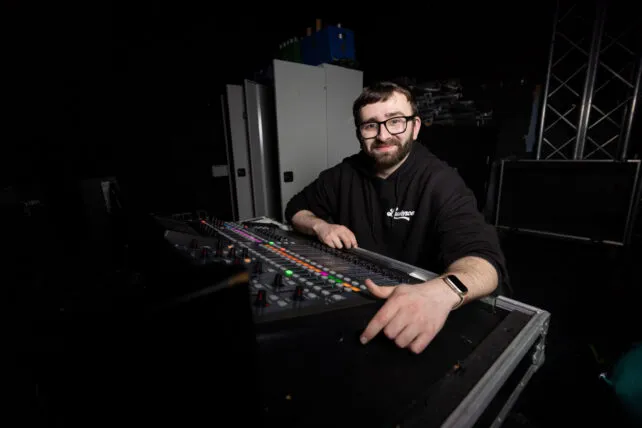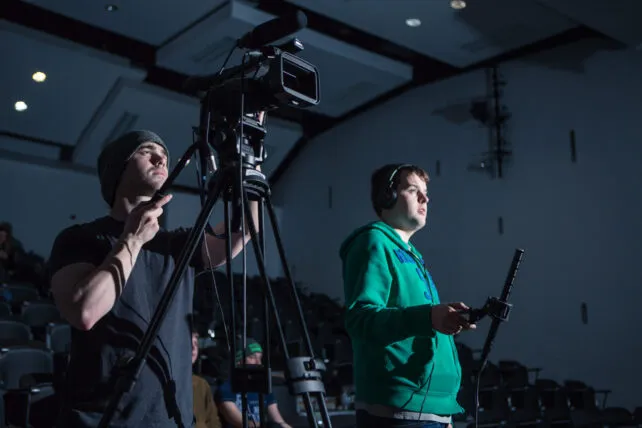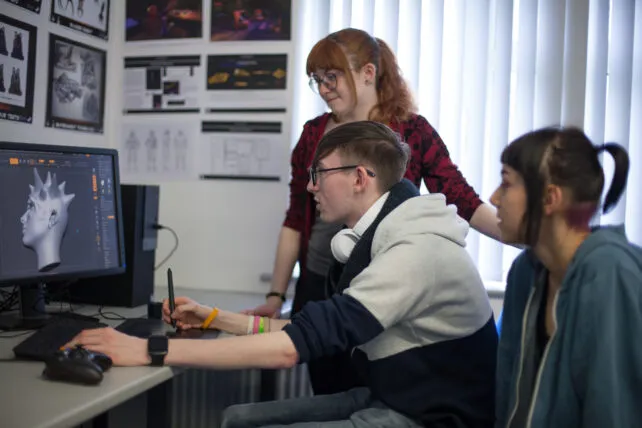The skills developed during the Music Placement Practice module include both workplace and work-based components reflecting a competitive project/gig-based industry that is heavily reliant on professional networks of predominantly self-employed entrepreneurial specialists.
Students may complete the learning outcomes by choosing either an external or in-house pathway outlined below.
External pathway
The external workplace component provides students with an opportunity to develop technical job-related skills, numeracy and literacy skills, use of new technologies, critical evaluation of a host organisation and meta-cognition skills such as reflective learning and self-regulation.
Students will apply previously acquired learning, work with less explicit instruction and cope with a variety of workplace challenges. The external work-based component enhances the student’s employability by working on a wide range of employment and entrepreneurial skills, from adapting to workplace culture, managing time and stress to demonstrating initiative and engagement in the pursuit of broader future business prospects.
In-House pathway
The in-house workplace component provides students with an opportunity to develop the same skill criteria as above via the coordinated integration of individual, shared and rotating industry roles when engaging directly with local industry participants to produce high calibre audio-visual events as part of the in-house Millennium Sessions company. As part of the in-house work-based component, a broad understanding of the intricate historical and contemporary structures of the music and neighbouring industries is refined by each learner via their experience of the Millennium Sessions company into targeted and actionable individual initiatives, generating sustainable personal industry access strategies.
The Music Placement Practice module both addresses the unique nature of the music and related industries and responds to an obligation towards facilitating inclusive all-student access to industry opportunities and active workplace/work-based learning experience. The flexibility embedded within the structured self-directed learning process as part of the in-house pathway is preserved and maximised by means of a timetabling initiative that embraces current primary on-campus industry-standard resources, active off-campus peak-time industry engagement, as well as remote learning and supervision. Correspondingly, the external pathway provides students with ample opportunity to build confidence in their personal brand and entrepreneurial awareness.
The assessment strategy requires students to identify and actively improve key skills such as productivity, professionalism, communication, motivation, initiative, problem-solving and decision-making. Students must reflect on how they have managed challenges in a workplace environment, how they operate within teams and are also guided to explore a targeted area in industry that lies outside their designated areas of work.










